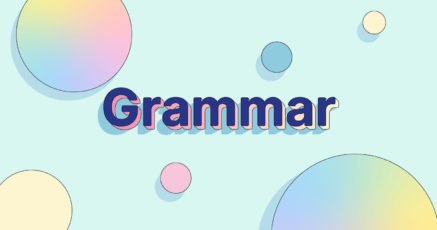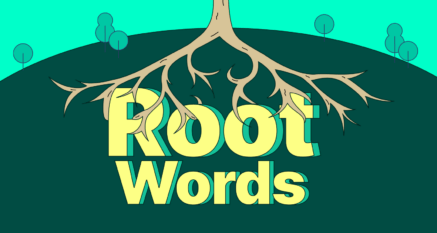Grammar Tips - Page 2
 What Is the Predicate Nominative in Grammar?The predicate nominative is a confusing topic in English, even for lifelong speakers. So what is a predicate nominative? Below we...November 27, 2023
What Is the Predicate Nominative in Grammar?The predicate nominative is a confusing topic in English, even for lifelong speakers. So what is a predicate nominative? Below we...November 27, 2023 Participial Phrases: How They Work, With ExamplesAdding extra description to a noun, a participial phrase is a great way to explain details without interrupting the rest of a...November 14, 2023
Participial Phrases: How They Work, With ExamplesAdding extra description to a noun, a participial phrase is a great way to explain details without interrupting the rest of a...November 14, 2023 What Is a Compound Subject in Grammar? Meaning and ExamplesA subject is one of the two main grammatical parts of a sentence or clause (the other is the predicate). The subject is the noun,...October 31, 2023
What Is a Compound Subject in Grammar? Meaning and ExamplesA subject is one of the two main grammatical parts of a sentence or clause (the other is the predicate). The subject is the noun,...October 31, 2023 Root Words: Definition, Lists & ExamplesHave you noticed that some words—like act, react, and action—include the same parts as other words? These repeated parts are root...October 14, 2023
Root Words: Definition, Lists & ExamplesHave you noticed that some words—like act, react, and action—include the same parts as other words? These repeated parts are root...October 14, 2023 What Does “Connotation” Mean? Definition and ExamplesConnotation is what a word means, but it is not its definition. Trust us, it isn’t as confusing as it sounds. Think about the...September 13, 2023
What Does “Connotation” Mean? Definition and ExamplesConnotation is what a word means, but it is not its definition. Trust us, it isn’t as confusing as it sounds. Think about the...September 13, 2023 What Are Determiners? Definition and ExamplesDeterminers are words that come before nouns and specify something about their quantity, definiteness, or ownership. Another name...August 17, 2023
What Are Determiners? Definition and ExamplesDeterminers are words that come before nouns and specify something about their quantity, definiteness, or ownership. Another name...August 17, 2023 How Do You Spell “Receipts”? Tips for Getting It RightReceipts can be a tricky word to spell. You might find yourself wondering, “Is it receipts or reciepts?” In this article, we...August 11, 2023
How Do You Spell “Receipts”? Tips for Getting It RightReceipts can be a tricky word to spell. You might find yourself wondering, “Is it receipts or reciepts?” In this article, we...August 11, 2023 What Is an Object Complement in Grammar? Definition and ExamplesWhen it comes to grammar, some concepts are more slippery than others. A lot of times, that slipperiness comes from the fact that...July 12, 2023
What Is an Object Complement in Grammar? Definition and ExamplesWhen it comes to grammar, some concepts are more slippery than others. A lot of times, that slipperiness comes from the fact that...July 12, 2023 A Guide to Using “Me” and “I”Knowing when to use me and I can be confusing, so here is a quick guide: Use me when you’re talking about an action done to,...July 10, 2023
A Guide to Using “Me” and “I”Knowing when to use me and I can be confusing, so here is a quick guide: Use me when you’re talking about an action done to,...July 10, 2023 Understanding Subject Complements in GrammarYou probably use subject complements correctly all the time, without necessarily knowing that’s what they’re called. That’s...July 4, 2023
Understanding Subject Complements in GrammarYou probably use subject complements correctly all the time, without necessarily knowing that’s what they’re called. That’s...July 4, 2023